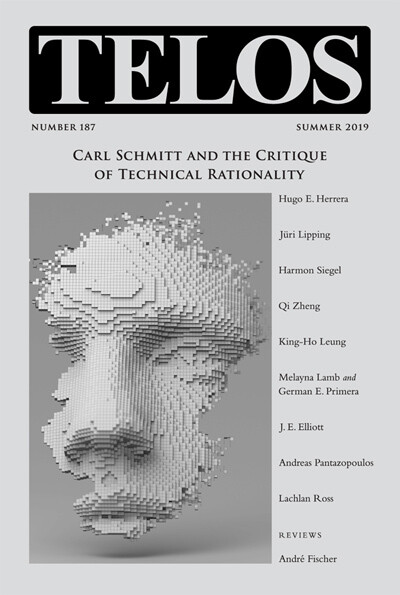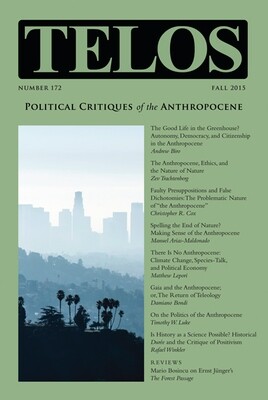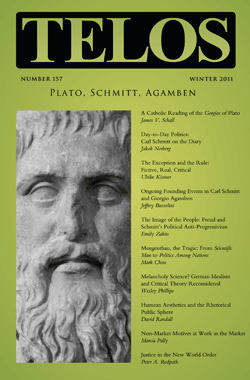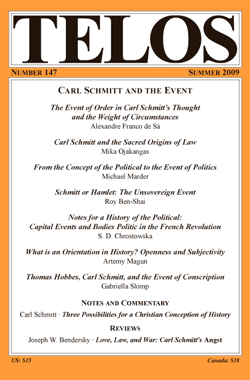Telos 187 (Summer 2019): Carl Schmitt and the Critique of Technical Rationality
Carl Schmitt and the Critique of Technical Rationality
With every technological advance that promises to bring us more control over our lives, we as a species are facing ever greater risks and uncertainties. The question concerning technology has become the unpredictability and uncontrollability of its development itself. The path forward will not be revealed by new technological advances, which can easily create more problems than they solve, but through the development of new ethical, political, and affective frameworks by which people understand themselves and their connections to the rest of the world. This issue of Telos, devoted to Carl Schmitt and the critique of technical rationality, investigates the ways in which Schmitt’s critique moved him toward ways of considering law, politics, and human history as fundamentally uncertain movements, requiring strategies that accept such unpredictability even as we try to intervene in our historical development as a species.
Introduction
David Pan
Schmitt vs. Derrida: The Distinction between the Juridical and the Technical Rationality
Hugo E. Herrera
Conceptual Affinities around the Political: The Case of Laclau and Schmitt
Jüri Lipping
A Solution in Hieroglyphic: Carl Schmitt, Herman Melville, and the Politics of Images
Harmon Siegel
Carl Schmitt, Justice of War, and Individual Citizen’s Obligation
Qi Zheng
Living Paradoxes: On Agamben, Taylor, and Human Subjectivity
King-Ho Leung
Sovereignty between the Katechon and the Eschaton: Rethinking the Leviathan
Melayna Lamb and German E. Primera
Insourcing Dissent: Brand English in the Entrepreneurial University
J. E. Elliott
Notes and Commentary
National-Populist Social Protest as a Manifestation of Crisis: From December 2008 to the “Indignants” (2011): A Greek Political and Ideological Chronicle
Andreas Pantazopoulos
“Marxism” versus Hegelianism-Engelsism-Stalinism
Lachlan Ross
Reviews
Visions of a Technological World
André Fischer












